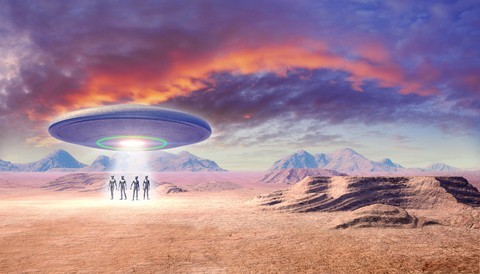Here is a bit more information regarding their calculations. And for most space fans and science fiction fans alike, it is promising!
That raises an interesting question: how has all this new data influences the Drake equation? Today we get an answer of sorts thanks to the work of Adam Frank at the University of Rochester in New York and Woody Sullivan at the University of Washington in Seattle. “The empirical determination of exoplanet statistics has radically changed the nature and quality of constraints astrobiologists now have at their disposal when considering the prevalence of life in the Universe,” they say.
And it immediately leads to an interesting conclusion. If the probability of a technological species arising on a given planet in a habitable zone is greater than one in 60 billion, then another technical species has probably arisen at some point elsewhere in the Milky Way. A tantalizing thought.
What would you do if you had a huge budget? Would you deploy a S.E.T.I.-like search method or perhaps invest in propulsion systems?
Feel free to comment!
thanks to MIT Review for the great info
thanks to cornell.edu for the great info

What’s the chances of finding one and not knowing it’s there?
What are the chances they already know how shitty of a species humans are and just avoid us?
If Einstein was right and the speed of light is the maximum velocity then the chances are “0” but if he was wrong then the chances are still “0”…that is due to the fact that Earth is an insignificant little planet on the arm or a spiral galaxy in a universe filled with galaxies
If I read right they just broke the light speed barrier… :/
They will more likely find us before we find them.
I think aliens live among us like the reptilians
It was a silly idea. We just lucked into splitting the atom.
We are the alien civilization. We no longer fit within or belong in Earth’s ecosystem. In fact, we are toxic to this planets health and its future.
And that’s the glass half “full” outlook.
Zero!
Lol funny question…..
We keep finding life on this Planet, It’s everywhere, But not like us